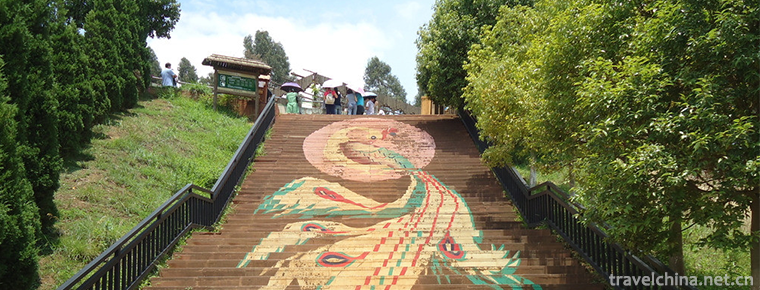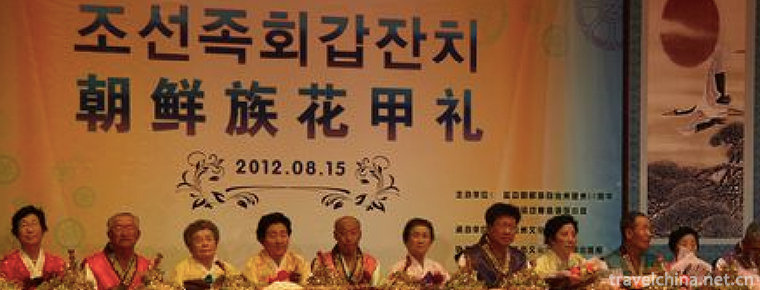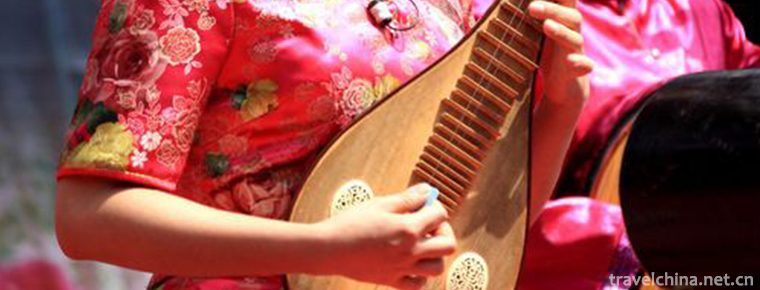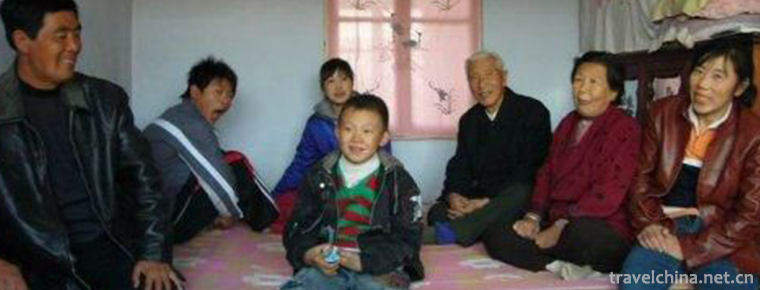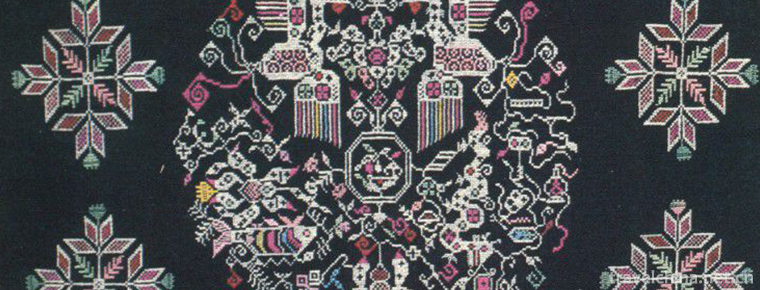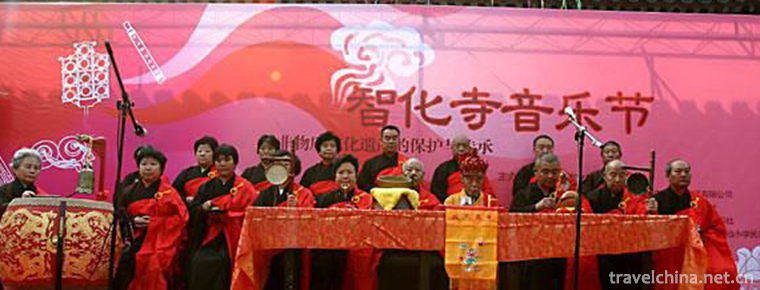Fallen Drama zhui zi xi
Fallen Drama zhui zi xi
Fallen Drama, a traditional drama in Shenze County of Hebei Province and Suzhou City of Anhui Province, is one of the national intangible cultural heritages.
Fallen Drama originated in Xiaoxian County, the hometown of Chinese opera and opera. On the basis of the tune of the song of the fallen song, we absorb some performance methods of Beijing Opera and Henan Opera, such as singing alone, singing in pairs and singing separately by many people; the singing tone is fluent and graceful, the words are easy to understand, which is popular with the masses and widely spread. It has its footprints in the north of the Great River, both inside and outside the Great Wall.
On June 7, 2008, Shenze County of Hebei Province and Suzhou City of Anhui Province jointly declared the "Fallen Drama" which was approved by the State Council to be included in the second batch of national intangible cultural heritage list with the serial number of heritage: IV-97.
historical origin
Dropping opera is one of the new local operas. It is named for its main accompaniment instrument, Dropping Hu. After 1944, Dangzi Opera was gradually transformed into a kind of opera brush by the "Yangqin Band" which was initially performed in theatrical form and absorbed the tune of a single Dangzi. It was first formed in Xiaoxian County, Anhui Province, and then gradually spread to Henan, Jiangsu, Shandong and Hebei provinces.
Before liberation, in the countryside of Xiaoxian County, Huaibei, there were many folk artists scattered in Yangqin, single-mouthed pendant and other singing activities.
In 1942, Xiaoxian Qinshu artist Du Qingxiang (Yongzhen) and more than ten others first formed a semi-professional concert club, which performed in theatrical form for the first time, with simple makeup, clothing and props, named "the Yangqin Class". Its tunes are mainly composed of the tunes of Anhui Qinshu, Bangzi tune and Lahun tune (Sizhou Opera). In the same year, Xiaoxian single-mouthed pendant male artist Li Shuoling (nicknamed "Big Black"), female artist Shi Fengxia and other artists have been added to the "Yangqin Class". Accordingly, the music of the "dulcimer class" has increased the music composition of the single pendant. As the music of the pendant has always been popular with the masses, Li Jiaoling is also an influential pendant artist in Huaibei area. Later, under the advocacy of Li Jiaoling, the "Yangqin Class" was changed to the "Tao Love Class" with the tune of the pendant (the early pendant was from the "Tao Love" in northern Anhui Province, combining the "Ying Song" in Northern Anhui and Eastern Henan Province. Liushu and Sanxianshu in Henan Province form a kind of folk art, hence its name. The opera sung by "Dao Qing Ban" is the earliest "Falling-down Drama". Until the liberation of the whole country, only Xiaoxian Daoist Class was the troupe that sang the pendant opera. Its active areas are mainly in the towns and villages of northern Anhui.
After the liberation of China, the opera troupe has developed rapidly, the number of troupes has increased gradually, and the area of activities has expanded rapidly. At the beginning of 1950, when Li Jiaoling and Du Qingxiang took Xiaoxian's Dao Qing Band to Henan Province to perform, some Shangqiu single-mouthed falling-son artists, with their help, also set up Shangqiu Dao Qing Band to perform falling-son drama (later changed to Shangqiu Qun Opera Society, in 1959 to Dancheng County Experimental Falling-son Opera Troupe). Under this influence, Nanle County of Henan Province also set up a Opera Club (renamed Nanle County Fallen Drama Troupe) to sing Fallen Drama.
In 1951, the Daoqing Class in Xiaoxian County, Anhui Province, was changed into a professional theatre troupe and named Xiaoxian Quyi Experimental Opera Troupe. After the establishment of the Xiaoxian Quyi Experimental Theatre Troupe, under the leadership of the government, it has enriched some main actors, trained some new forces, made great efforts to reform the music and singing, absorbed the advantages of other operas and applied them in the performance. It has also excavated, sorted out and adapted some traditional operas, and created and performed them. Some modern plays have attracted much attention from all walks of life.
Fallen Drama not only has a deep mass base in Anhui and Henan, but also is very popular in Jiangsu and Shandong provinces. In 1953, Shenze County, Hebei Province, also established the Fallen Drama Troupe.
In 1959, the Anhui Provincial Committee decided to set up the Anhui Fallen Drama Troupe in order to better support this young opera.
During the ten years of turmoil, the fall opera was cut down. After the fall of the Gang of Four, the fall opera was restored.
Inheritance and Protection
Inheritance value
Although it is a local opera, it is not earthy, sour and vulgar, and it is a kind of natural beauty of the countryside. Fallen Drama is good at expressing good, simple, straightforward and honest character. "Selling melons", "divorcing Wang Lin's wife", "small vegetable garden", "small Baogong" and so on, are all excellent dramas with falling hands. Fallen Drama is rooted in Huaibei and grows up in the vast world. It has a natural feeling with the people. It promotes truth, goodness and beauty, whips ugliness and falsity. It embodies the rural people's feelings, inherits the noble moral customs, is deeply loved by the people and is full of infinite vitality.
From the 1940s to the present age, Fallen Drama reflects the rural life in different periods, and has a flesh-and-blood relationship with the common people. The inheritance and development of Fallen Drama plays an important role in the development of rural culture.
Current situation of inheritance
With the change of society, the diversification of mass entertainment forms and the change of modern mass media mode, the fall drama has been greatly impacted. Its inheritance and development are difficult, and it needs urgent rescue and protection.
Heritage figures
Zhu Yuemei, female, born in April 1939, is the representative successor of the third batch of national intangible cultural heritage projects, declared by Suzhou City, Anhui Province. Declaration item: Fall-down drama.
protective measures
Suzhou actively supports the inheritance and development of non-heritage projects such as Falling Drama. A leading group headed by the deputy mayor in charge is established to organize and coordinate the implementation of project funds, and to establish a mechanism of objectives, investment, management, assessment and supervision to ensure the implementation of the protection plan. To train successors according to the plan and ensure the natural replacement of successors.
The Suzhou Municipal Government has increased its investment in the fall opera, and the conditions of the fall Opera Troupe have improved to a certain extent. At the same time, the old artists who have left their posts have been invited to train the new fall opera performers again, and the inheritance and training mechanism of fixed person, fixed point, fixed time, fixed content and fixed effect has been established.
social influence
Important Exhibitions
On September 27, 2017, one of the repertoires of the 4th Anhui Cultural Welfare People Consumption Season "Good Play Everyone Watches" series, a large-scale old Costume New pendant drama "Chinese Xiaoxian Minziqian", created and rehearsed by Suzhou Performing Arts Group, was successfully performed in Anhui Art Theater, in which the pendant drama was displayed.
On September 6, 2018, the seminar on non-hereditary inheritance and development of operas in Hebei Province and the National Exhibition on the protection of non-Heritage Fallen Drama were held in Shenze County, Shijiazhuang City. The performers of Shenze Fallen Drama Troupe and local students performed on the same stage, demonstrating the achievements made in non-hereditary inheritance of operas.

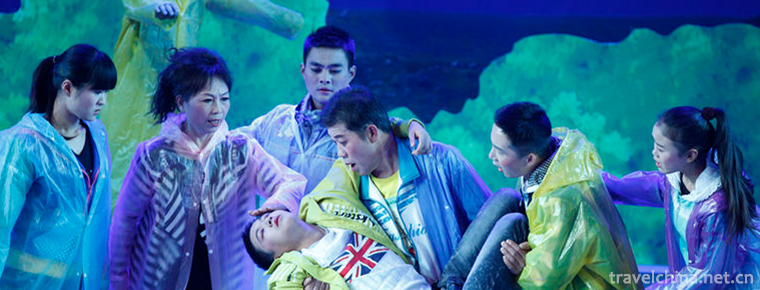
-
Yunnan Wildlife Park
Yunnan Wildlife Park is located in Qingshuihe Village, Fengyuan Road, Panlong District, Kunming City (beside Yunnan Forestry Department), 10 kilometers from the urban center of Kunming City.
Views: 194 Time 2018-12-22 -
Nangongshan National Forest Park
Nangongshan National Forest Park, located in Langao County, Ankang City, Shaanxi Province, is a branch of Hualongshan Mountain of Daba Mountain System, 33 kilometers from the county seat.
Views: 166 Time 2018-12-27 -
Red Leaf Valley Eco cultural Tourist Area
Red Leaf Valley Eco-cultural Tourist Area, National Key Scenic Spot, National AAAA Class Tourist Spot. Red Leaf Valley is located in the southern mountain area of Jinxiuchuan Township.
Views: 193 Time 2019-01-16 -
Huguangyan Scenic Spot
Huguangyan Scenic Spot is located 18 kilometers southwest of Zhanjiang City, the southernmost part of the mainland of China. It is called "natural yearbook" of earth and geological science b.
Views: 178 Time 2019-01-16 -
Winter capture of Chagan Lake
Winter fishing in Chagan Lake, namely ice and snow fishing (or hunting) in Chagan Lake in winter, is a traditional fishery production mode (custom) in Qianguoerros Mongolian Autonomous County.
Views: 166 Time 2019-04-15 -
Korean Huajiali
The flower armor ceremony of the Korean nationality is one of the important rituals of the Korean nationality's birthday ceremony. Since ancient times, the Korean people have regarded respecting the e.
Views: 275 Time 2019-04-16 -
Traditional flower arrangement
Chinese traditional flower arrangement art has a long history, extensive and profound, is the representative of Oriental flower arrangement art. It has the characteristics of dignified and elegant mod.
Views: 113 Time 2019-04-19 -
Fuzhou Arts
Fuzhou jiuyi, also known as jingyi, belongs to one of the five traditional local songs in Fujian Province, which mainly focus on singing, and is popular in Fuzhou dialect area.
Views: 393 Time 2019-04-29 -
Flower shuttlecock
Shuttlecock is a traditional folk sport with a long history, which is widely spread in China. Regular exercise can activate muscles and bones and promote health. According to historical documents .
Views: 294 Time 2019-05-04 -
Tan Zhenshan Folk Stories
Tan Zhenshan family has a tradition of "telling stories and telling ancient times". Some elders in the family are good at telling stories. Many stories have been passed down in their family .
Views: 344 Time 2019-06-18 -
Cross stitch
Flower picking, a kind of drawing work, also refers to a needle method of embroidery, Chinese folk traditional handicraft. Also known as "pick weave", "cross embroidery", "cro.
Views: 230 Time 2019-06-21 -
Jihua Temple Music
The music of Zhihua Temple and Beijing originated from the music of court etiquette in Ming Dynasty. It is the only kind of music inherited from generation to generation in China's existing ancient mu.
Views: 177 Time 2019-08-03
